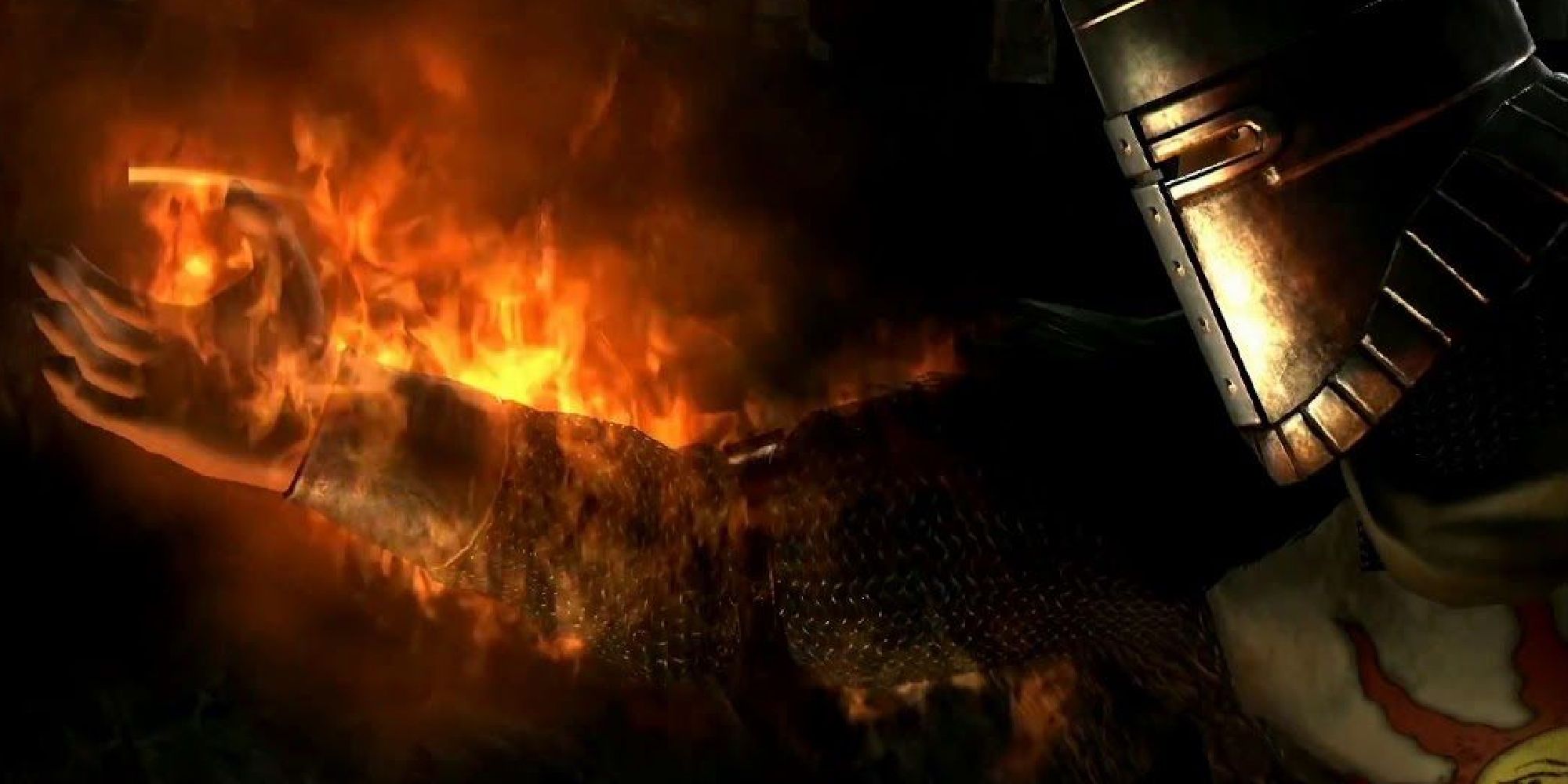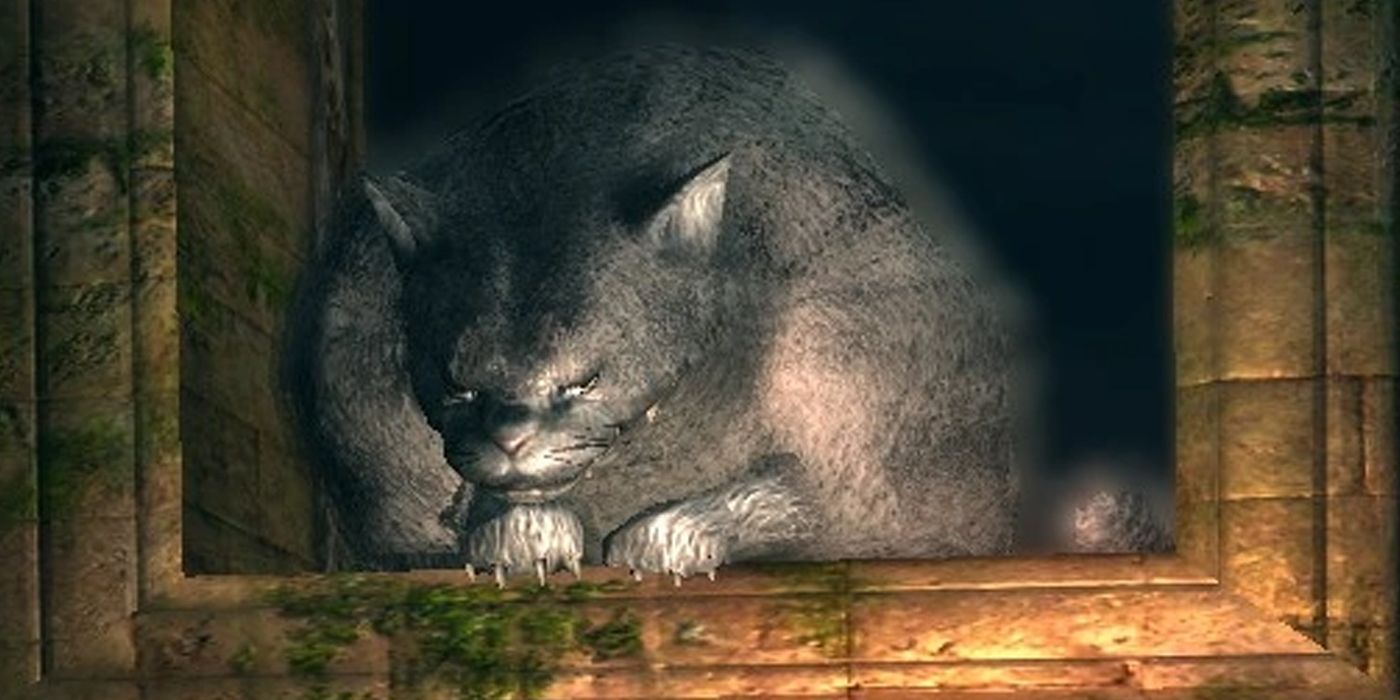Anxiety is a hard concept to put into words. Imagine knowing that you have a phone call later in the day or perhaps a meeting. It can be something as innocuous as talking to your doctor, scheduling a new debit card to be sent out, or renewing a subscription. By all accounts, those are mundane tasks. They aren’t particularly daunting. At least, they shouldn’t be. Yet anxiety is anything but rational. While for others, these might be things that go off the radar, for myself, I’ll spend the entire day stewing over them, letting the thoughts of going through with them cloud everything else. I’ve found several ways to cope over the years, but something that’s a little more unorthodox is the life lessons I’ve learned from Dark Souls.
I don’t want to harp on about video game difficulty so let me nip that discourse in the bud: add an easy option - it doesn’t hurt anybody. Anyway, for those who aren’t now frantically typing angry comments, let’s continue. Dark Souls’ challenge isn’t the sole or even key reason I love the series. In fact, I feel that with Sekiro, FromSoftware became a bit of a caricature. With that said, I do love the difficulty that the series brings.
At first, it was completely unintuitive. I nabbed Dark Souls 2 after mistaking it for Darksiders 2 and had a back and forth chat with a mate over Steam called Dr. Weegee. He tried to guide me through the early levels of the game via text. It was as horrendous as it sounds. Between the hapless footsoldiers and the odd jump over a ledge, everything was killing me. The environment had me in a stranglehold, the enemies were dancing on my grave, and bosses - if I could reach them, which was a strong if - would stomp me to the curb.
I was 14 and struggling with anxiety so much that I had a therapist pop in every week to take me out of maths class and ask me where I felt on a scale of sad face to happy face. Like with most things in life, I put Dark Souls down. I didn’t push on. See, back then, even the prospect of failure was terrifying, so much so that I’d avoid things like homework, revision, and socializing specifically because of that anxiety of failing. The panic about not succeeding, fitting in, or doing well in any regard would often completely overwhelm me, which eventually turned into a vicious cycle where I couldn’t succeed because I was busy panicking about not succeeding. Mental health is a circle-shaped stream constantly gushing at 60mph. Getting out of that by yourself is tough. Someone or something has to throw you a rope, and it can take a few tries.
Dark Souls lent me that rope. A few months later, I tried again, and I got into it. I had fun even though I was losing hours trying to get better. I had that same clouding anxiety that I wasn’t ever going to finish the game nagging at the back of my head - something I still deal with today when picking up a new title. Yet I got through it. I got through it numerous times, in fact, putting in hundreds of hours and completely conquering it.
Now, I can go back and it’s a cakewalk. I’ve earned that. It took effort and time, though, and that was something valuable to learn at 14 when grappling with this horrendous smog of panic attacks and irrational fear. Everyone has been anxious at some point in their life. You’ve no doubt at least once found yourself afraid at the prospect of failure. It’s human. The key difference here is that it’s not a thought or general fear you can put aside and push through. It’s a debilitating wave that drowns out everything else, leaving you fixated and inconsolable. Hiding panic attacks at secondary school because the teachers wouldn’t listen to me when I tried to explain what was happening scarred me. Gaming helped me a lot with that.
After Dark Souls 2, I picked up the first game. It was much tougher, and again, I powered through. Then Demon’s Souls. Then Bloodborne. Then Dark Souls 3. All the while, my anxiety in dealing with real-life situations got better. I was managing the mundane, socializing a bit more, and learning new skills like cooking. I wasn’t overpowered by a fear of failure that completely stopped me from even attempting things because the panic attacks would be too frightening to even consider coping with.
Sure, I didn’t fully come to terms with my anxiety there and then - that would be a lie. I’m still dealing with it today and having a slew of issues, but it helped me conquer the mundane the same way I toppled Quelaag in Blighttown or The Mirror Knight guarding the dragon’s den in the second game. It helped me learn that no matter how challenging or unbeatable something might feel, you’re capable of emerging victorious. That mindset put me through my GCSEs, my A-Levels, and now, as of this year, my degree. I genuinely don’t think I would’ve managed all of that without Dark Souls.
Games often teach us lessons. They can be eye-opening in a variety of different ways, whether that’s becoming more open and accepting towards people of different cultures or backgrounds or coming to terms with struggles in your own life that you haven’t found a way to visualize before. Dark Souls was a manifestation of that anxiety I was dealing with, something I’d never been able to put into words before. Having a visual representation of that - even if it was unintentional - meant I had something to defeat and defeating it meant I could do the same in real life. I did.


